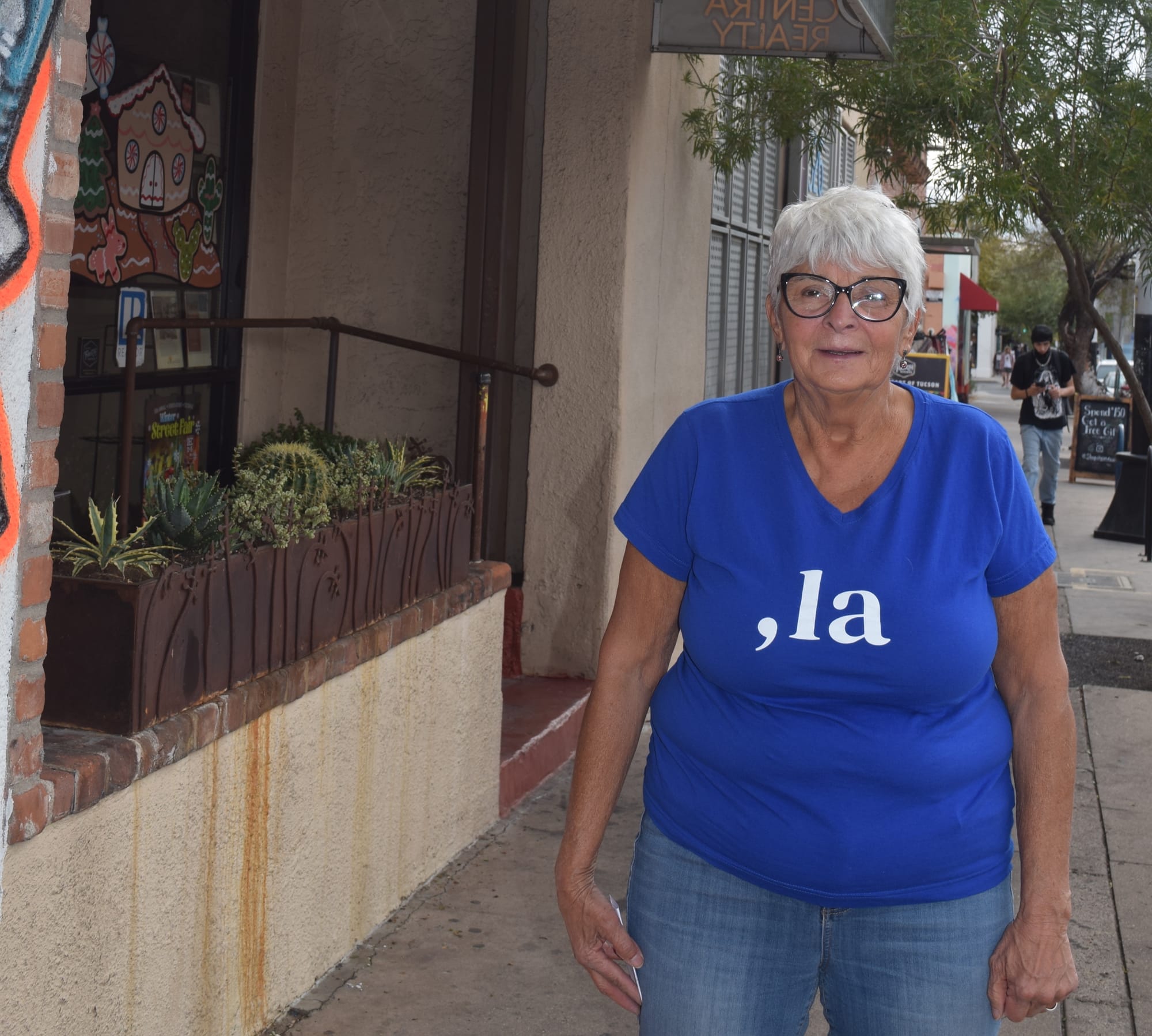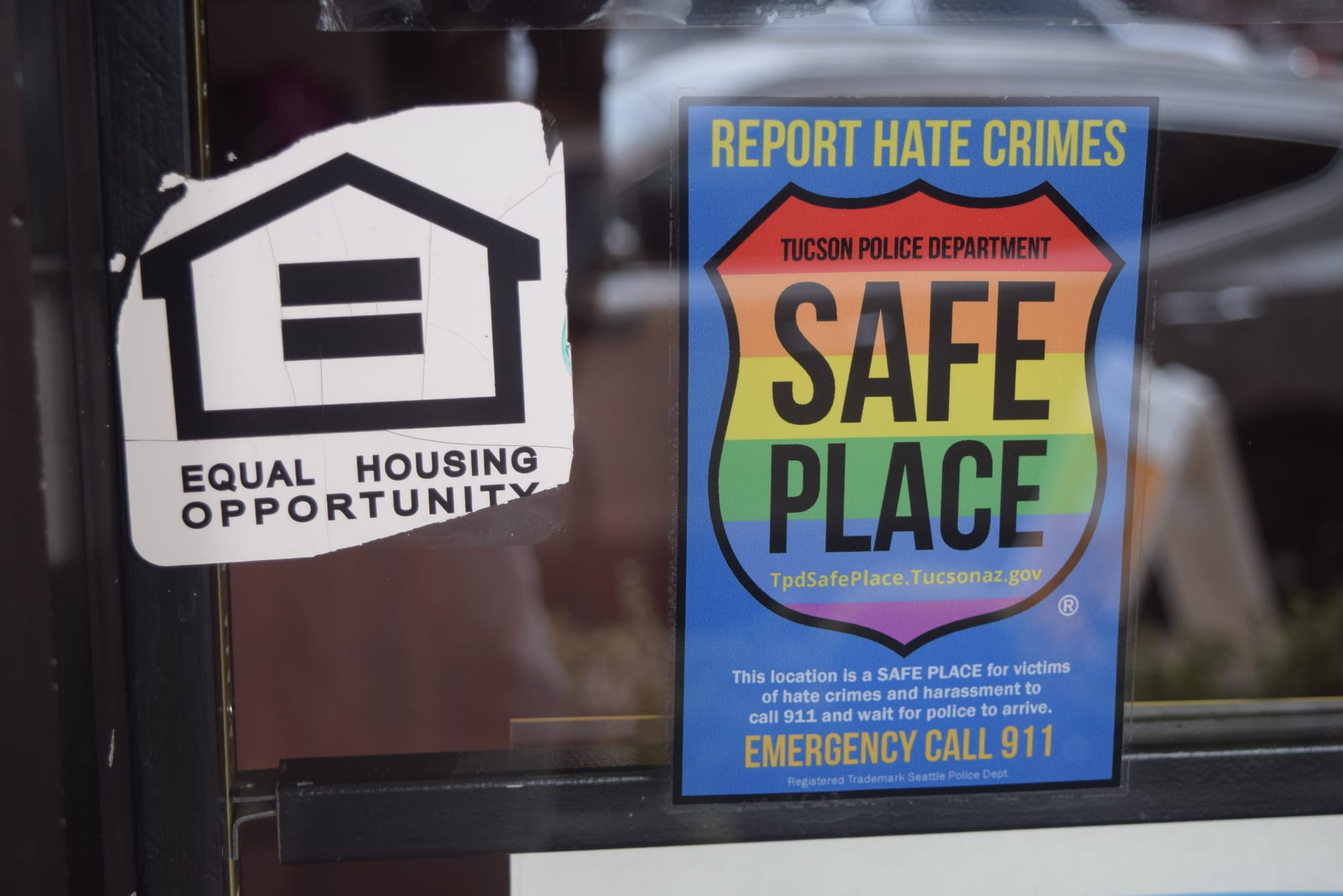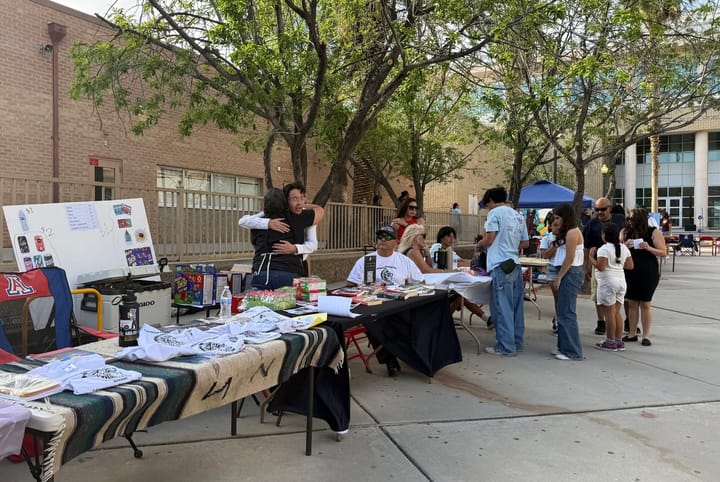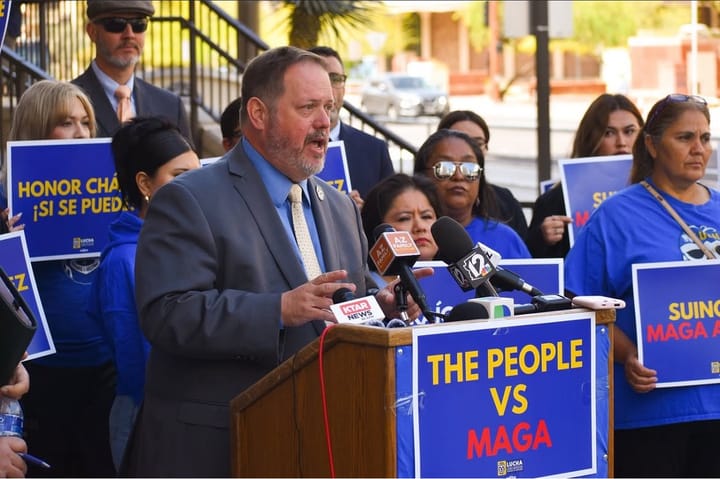Bar owner turned realtor champions LGBTQ+ rights and representation
Colette Barajas opened Colette's West, one of Tucson's first lesbian bars, on North First Avenue in 1983.

Growing up on the south side of Chicago, Colette Barajas watched her mother move in a world where single parents were the subject of discrimination.
Despite the adversity she faced, Barajas’ mother always assured her that if she was unapologetically herself, she would be just fine.
“I realized one day that God gave me courage and a voice to help others who were afraid,” she told Tucson Spotlight, sporting a pride pin and shirt. “It’s not that I’m not afraid. I just do it anyway.”
When Barajas moved to Tucson in 1974, she was taken aback that she, as a lesbian woman, could not enter any of the traditional gay bars. She took this as an invitation to someday create her own space where everyone was welcome.
In 1983 she opened Colette’s West on North First Avenue, one of the first lesbian bars in Tucson.
The bar was surrounded by a large thoroughfare that 9-to-5 workers used to travel to and from their jobs every day. This was intentional, with Barajas saying she had no interest in her establishment being hidden away in a back alley where no one would notice it.
“I wanted to be right where it was safe and where we were seen,” she said. “Why should we have to hide?”

The bar featured a large marquee sign that Barajas would use to advertise for LGBTQ+ rights. Its slogan was, “A women’s bar where everyone is welcome.”
“I remember a time when I was changing the sign and someone drove by and yelled (a homophobic slur) at me,” she said with a chuckle. “I was like, ‘Oh okay, I didn’t know. Thanks for letting me know.’”
Barajas’ father worked security at the door, as he was both protective of his daughter and supportive of her identity. The bar’s proximity to a police station added to its feeling of safety, and it was frequented by all types of patrons, not just members of the LGBTQ+ community.
She said she faced some minor resistance from the city when she first opened, including not being provided with a dumpster. Instead of getting mad, she got creative, marching into city hall carrying three overflowing trash bags.
“I told them, ‘I own a business and I requested a dumpster on a number of occasions and I haven’t been able to get one, so I thought I’d bring my trash here,’” Barajas said.
She received her dumpster shortly after.
Colette's eventually moved to 3143 E. Speedway Blvd., where the Red Garter now stands, and throughout her time with the bar, Barajas remained heavily involved in activism. With her shaved head and armed with a bullhorn, she was not shy about showing her support.
She recalls one time, standing alone on a street corner near Davis Monthan Air Force Base, shaking inside as she waved flyers and chanted, “2, 4, 6, 8! How do you know your colonel is straight?”
Barajas said she knew even before that moment that her purpose in this world was to represent people who had not yet found their voice.

After running the bar for about eight years, she decided it was time to move onto something new.
She became a designated broker and opened Centra Realty on Fourth Avenue, where she uses her fifty years of Tucson knowledge to help connect community members with safe places to live in the area.
“I am a tough negotiator but I’m fair,” she said. “My voice never changes. I don’t yell and I don’t scream, but I do fight for my clients.”
In 2000, she dipped her toe into the world of politics, running for a seat in the Arizona House of Representatives in the 13th district. Barajas dropped out of the race a week before the primary, in a race that former Congresswoman Gabrielle Giffords went onto win.
Barajas is still active in social justice work, serving as a volunteer and activist for several organizations and continuing to fight for her own rights and others’.
Her mission is to create an atmosphere of community rather than competition. With a pride flag flying in the window of her realty office, which sits right next door to the Southern Arizona AIDS Foundation’s Thornhill Lopez Center on 4th, Barajas continues to fight for the right to be treated with respect, regardless of who a person loves.
“Dislike or hate me after you meet me,” she said. “Get to know me and if there is something about me that you don’t like, then fine. But don’t hate me because you find out that I love a woman.”
McKenna Manzo is a journalism major at the University of Arizona and Tucson Spotlight intern. Contact her at mckennamanzo@arizona.edu.
Tucson Spotlight is a community-based newsroom that provides paid opportunities for students and rising journalists in Southern Arizona. Please support our work with a paid subscription.




